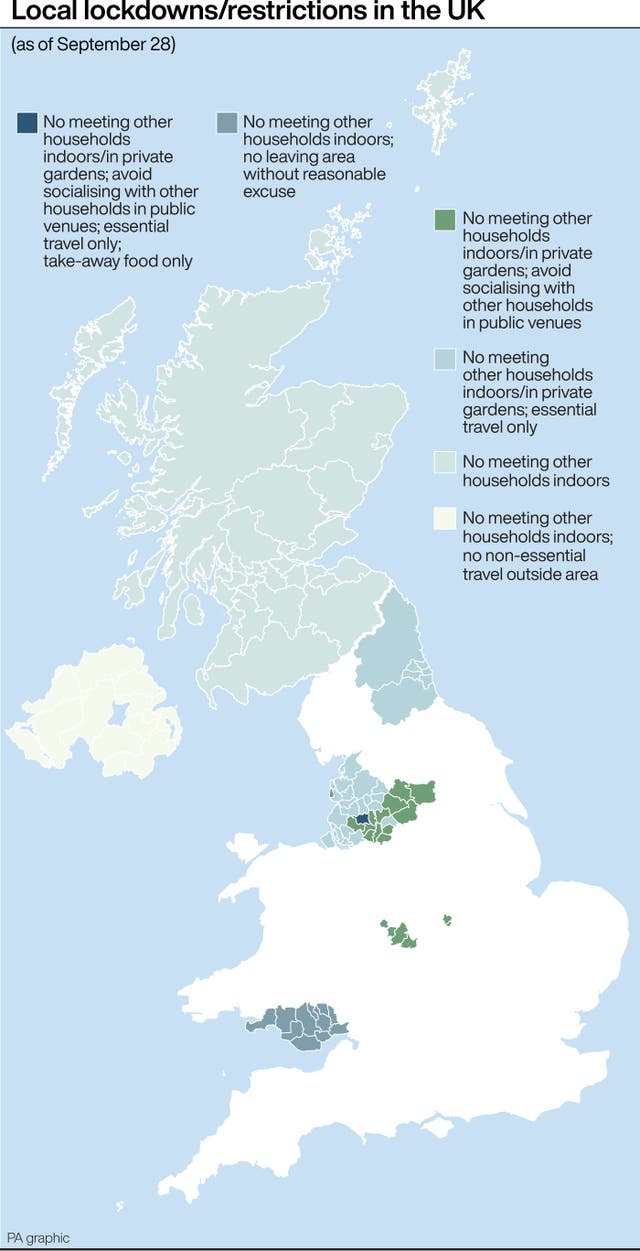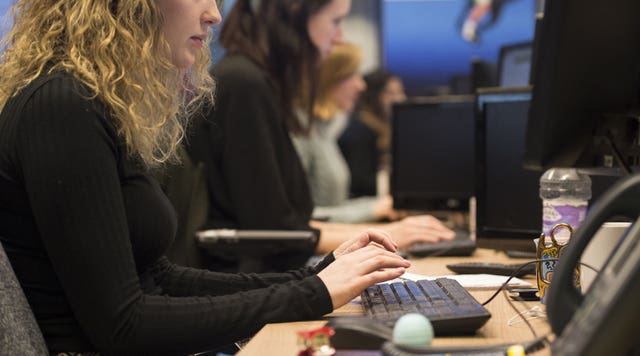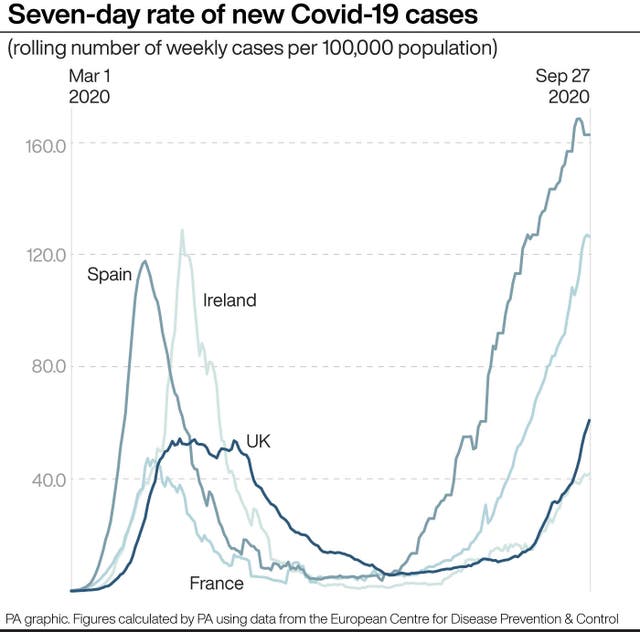What are the latest coronavirus laws and restrictions?
Key questions answered.

Another raft of rules have been brought in by the Government in a bid to slow the spread of coronavirus, this time imposing bans on music, singing and dancing and introducing costly fines on people who flout orders to self-isolate.
The PA news agency takes a look at what the latest regulations say:
– What has changed?
From Monday, there are new rules requiring people to self-isolate in England, with businesses having to abide by workplace safety measures, and there are restrictions on music, singing and dancing.
The Health Protection (Coronavirus, Restrictions) (Self-Isolation) (England) Regulations 2020 require people to self-isolate if they test positive for coronavirus or are contacted by the test and trace service.
The Health Protection (Coronavirus, Restrictions) (Obligations of Undertakings) (England) (Amendment) Regulations 2020 limit the volume music can be played at in venues and curbs the number of scenarios where singing and dancing are allowed.
– What are the restrictions on music, singing and dancing?
Pubs, bars, restaurants and cafes are banned from playing music at more than 85 decibels, although live performances are exempt.
“All reasonable measures” must be taken by pub landlords and those who run hotel bars, restaurants and members’ clubs to halt singing on the premises by customers in groups of more than six, and also to stop dancing.
Wedding ceremonies and receptions are exempt from the rule.

You must self-isolate for up to 14 days and tell the authorities who is in the house with you.
It appears the rules do not apply for notifications from the NHS Covid-19 app.
– Who does this apply to?
Anyone who does not have a reasonable excuse and is therefore exempt.
If you are responsible for a child who has tested positive or come into close contact with someone who has tested positive, they must also self-isolate.
Close contact means face-to-face with someone less than a metre apart, spending more than 15 minutes within two metres of someone, travelling in a car or “other small vehicle” with someone, or in close proximity on a plane.
– Where can I self-isolate?
At home, in accommodation provided by the Government or a council, in the home of a friend or family member, in bed and breakfast accommodation, or any other “suitable place”.
– What are the exemptions?
– Seeking urgent medical assistance, or as advised by a doctor including going to a dentist, optician, audiologist, chiropodist, chiropractor, osteopath or other medical or health practitioners, or attending mental health services
– Urgent pet appointments
– Attending court and signing on for bail
– To avoid danger
– To attend the funeral of a close family member
– To buy “basic necessities” like food or medical supplies for those in the same household, including pets, when it is not possible to obtain these by any other means
– To access public help like social services or support for victims of crime
– Or to move to another suitable location if it becomes “impracticable to remain at the current address”
– What about work?
Staff must tell their employer they have to self-isolate or risk a £50 fine.
Agency workers must inform their contractors.

Employers must not allow people to go into work if they know they have to self-isolate.
– What happens if I don’t self-isolate?
Police can forcibly remove people back to their accommodation and they could be fined up to £10,000.
Parents and guardians can also be told to take children back to the place where they should be self-isolating.
There is a £4,000 first-time fine for those who are “reckless” by coming into contact with others when they know they should be self-isolating.
You can also be fined £1,000 for a first-time offence for giving false information or falsely claiming someone had been in contact with a person who had tested positive, meaning they would have to self-isolate.

The law allows authorities to use your personal information – name, address and phone number – to contact you to check whether you are complying with the rules.
Information gathered about you can only be used against you if you are being prosecuted for flouting these rules. It cannot be used as evidence by prosecutors in unrelated criminal proceedings, according to the legislation.
Businesses could be fined £10,000 if they do not display signs reminding people to wear a face mask on their premises where needed.
– How long will the rules last?
The rules must be reviewed within six months but could last up to a year unless the Government decides to scrap them earlier.
– What about the rest of the UK?
A 10pm curfew is also in place for pubs, bars and restaurants in Scotland, while household mixing indoors is banned, with exemptions for those living alone, couples who do not live together, childcare and tradespeople.
Students in Scotland were told they can return home from university accommodation on a long-term basis, as long as they follow rules on self-isolating.
In Northern Ireland, households are not allowed to mix indoors, except for single-person bubbles and certain other exemptions, and no more than six people from two households can meet in private gardens.
Pubs which do not serve food, known as wet pubs, were able to open once again last week for the first time in six months, despite the latest restrictions.
Meanwhile, Neath Port Talbot, Torfaen and the Vale of Glamorgan in South Wales went into local lockdown from 6pm on Monday, which means people will not be able to enter or leave these areas without a reasonable excuse.
They will not be able to meet indoors with anyone they do not live with, with extended households suspended.
Similar restrictions are already in place in Cardiff, Swansea, Llanelli, Blaenau Gwent, Bridgend, Caerphilly, Merthyr Tydfil, Newport, and Rhondda Cynon Taf.





